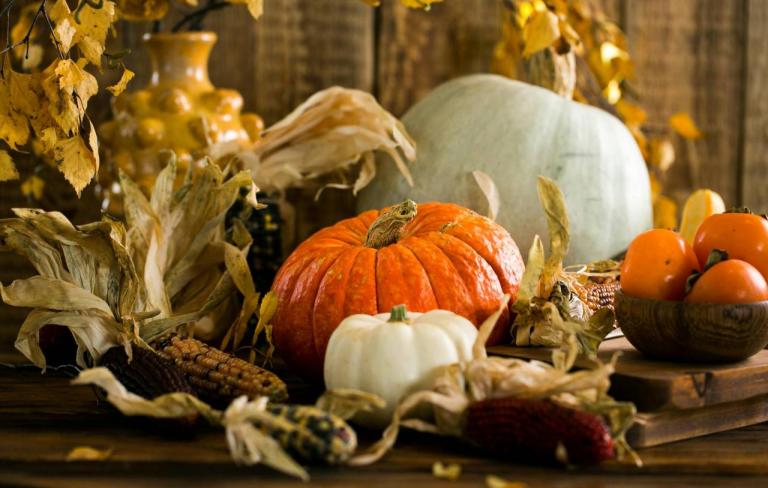
The lunar Islamic calendar gives Muslims the unique opportunity to perform their ritual practices throughout the entire Gregorian year. Sometimes, this is most welcome: such as Ramadan occurring in December, with its short days and long nights. Other times, this presents a difficult challenge: such as the current situation with Ramadan, which will be in the summer months for the next decade. And as always, the juxtaposition of the various Islamic holidays with those of other Abrahamic faiths allows constant reflection over the importance of acknowledging and working together as people of faith.
Yet, this year, the calendar coincidence could not have been more perfect: this year, the day of Arafat is on Thanksgiving.
I was blessed to perform the Hajj more than six years ago, and it was the most powerful and uplifting spiritual experience of my entire life. And I remember the day of Arafat as if it was yesterday. Arafat is a large, flat desert plain outside of Mecca. Indeed, there is a small mountain associated with it, but its expanse goes way beyond it. It is said that at Arafat, Adam and Eve were first re-united after their expulsion from the Garden. On the plain of Arafat, pilgrims gather on the 9th day of Dhul-Hijjah to stand before God and beg for His mercy and forgiveness. It is a dress rehearsal, of sorts, for Judgment Day.
Our accommodations at Arafat were quite comfortable: I was in a large, carpeted, air-conditioned “room” (more like hanger) with all the food and drink I needed. Most of the day was spent in quite reflection, prayer, reading of scripture, and sipping of sweet, hot tea. After the prayer of Asr, however, everything changed; everything became serious, for the business of forgiveness had begun.
Several people gathered in groups to pray for forgiveness together and out loud. I preferred to be by myself, with all of the sins I had accumulated over my relatively short life on earth, alone with my Lord. There I was – almost naked – on my knees, thinking over all that I had done in my life that was so unbecoming of a grateful servant to whom life was given by the Precious Beloved Lord. There I was, knocking upon the Lord’s door and hoping against hope that He would not reject and turn me away. There I was, kneeling in shame and humiliation before the Kind One, praying that He takes me into his Soothing Arms, despite all that I had done. The emotion quickly became overwhelming.
As I prayed and prayed, and prayed; as the sun slowly sunk beneath the horizon, and the power of that moment in my personal spiritual history became palpable; as I crumbled under the weight of His Beauty and my ugliness, I could not stop the emotion weeping out of every recess of my soul. Yet, as the sun set and darkness blanketed the desert of forgiveness, a wonderful feeling of elation crept over me: I was saved, and I could feel it.
And after elation came enormous gratitude.
Historical research has cast doubt upon the innocent story that I was taught about the origins of the Thanksgiving holiday, but the concept of the day remains untainted: this day, at least, should be spent in giving thanks to our Lord for all the blessings and goodness we have received. Thus, there could not be a day that is more fitting to coincide with Thanksgiving than the day of Arafat.
As I, and the millions of my fellow pilgrims, moved on from the plain of Arafat to Muzdalifah, one cannot help but be grateful to God for His forgiveness. One cannot help but be grateful to God for His acceptance and grace; His opening the Door of Forgiveness to all who come; His Beautiful Face that He showed all who struggled to come to the Holy House. Those who are on the plain of Arafat right now are feeling the same thing, and I cannot help but smile when I think of their grateful elation.
Moreover, many Muslims will this day be fasting the daylight hours in solidarity with those blessed to be on the Hajj. Although Thanksgiving is most thought of as a feast: it is more fitting for it to be a fast. Even though, thankfully, the day is short and the sun will set early, as Muslims deprive themselves of food and drink, they are reminded of the countless people across the globe who forgo food and drink not out of choice, but out of dire deprivation. And that includes people who reside in this very country, as the U.S. Department of Agriculture recently reported. Therefore, we should be doubly motivated to help those who are less fortunate. If one is to be truly thankful for the bounties bestowed, then she should do all she can to help those in need.
The juxtaposition of Islamic holidays with prominent non-Muslim ones is always a great opportunity to educate and remind people of the beauty of our faith. I am sure that one day – quite soon, in fact – I will be writing about the connection between Ramadan and Independence Day. Yet, when I thought about the coincidence of Arafat and Thanksgiving, it truly gave me pause, for I cannot see two seemingly unassociated events be so similar in their meaning and significance. It may be a coincidence that is once in a lifetime.
Hesham A. Hassaballa is a Chicago physician and writer. He is the co-author of “The Beliefnet Guide to Islam,” published by Doubleday in 2006. His blog is called God, Faith, and a Pen.











